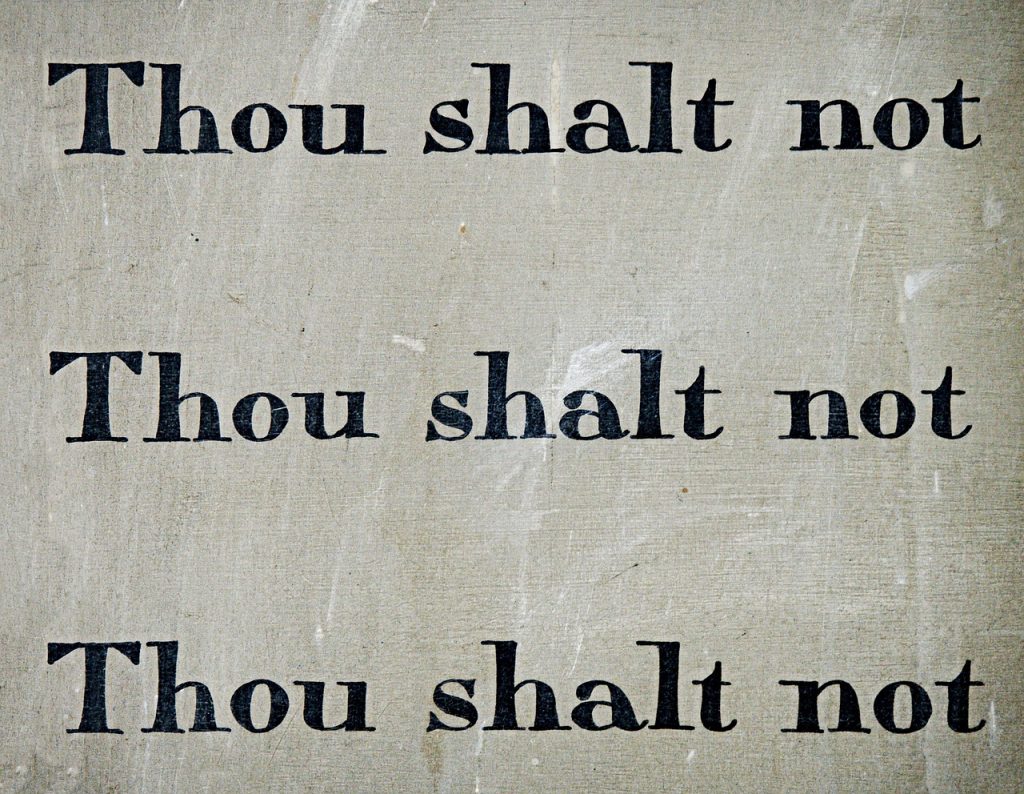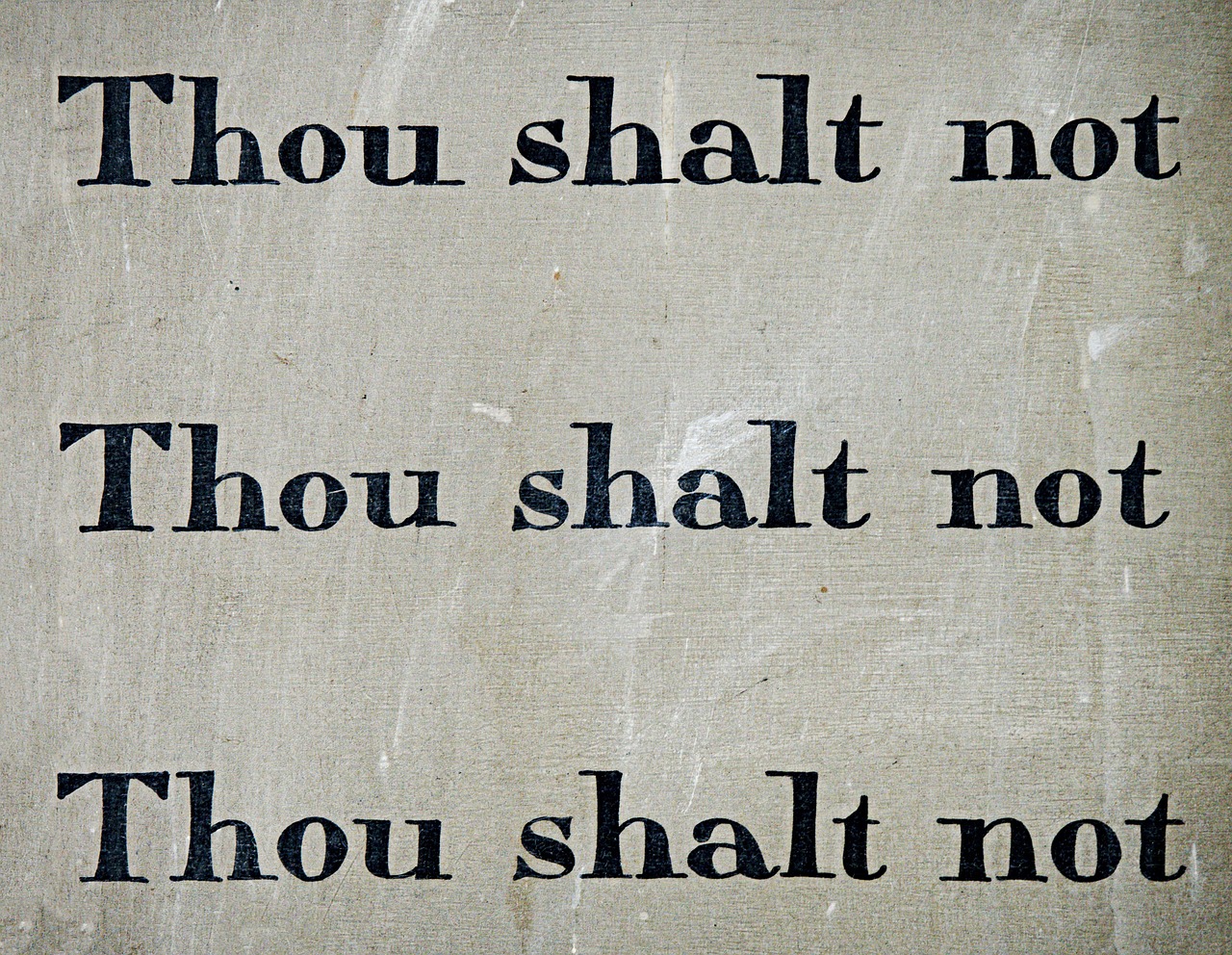
The Mosaic Law and Tithes
What is the law of tithing? What’s the relationship between the Mosaic Law and tithing? The Mosaic Law, also known as the Law of Moses or Mosaic Covenant, governed every aspect of life for the children of Israel. The Law consists of 613 commandments, which include the tithe command. Under the Law, the ancient nation of Israel had to give tithes.
Why should the Mosaic Law matter to Christians? One of the main reasons is that many preachers have incorporated the tithe command into modern-day Christianity. They take the position that Christians must tithe to the church because the Lord established it as a commandment within the Mosaic Covenant. Additionally, their definition of a tithe is 10% of one’s income.
Unfortunately, many Christians have been led astray by this kind of teaching. It’s a false doctrine because it takes the tithe command from its correct biblical context. To understand Bible-based tithing, we must first examine the Mosaic Law.
Table of Contents
- The Mosaic Law and Tithes
- Listen to the Podcast
- What Is the Mosaic Covenant?
- Many Commandments, One Law
- Summary
- Outsmart the False Teachers
Listen to the Podcast
What Is the Mosaic Covenant?
The Law of Moses is the covenant the Lord established with ancient Israel. A covenant is an agreement.
With this agreement (or covenant), the Lord promised to protect (and bless) ancient Israel. This promise was contingent upon the children of Israel keeping the commandments of the Law.
Leviticus 27:34
These are the commandments, which the LORD commanded Moses for the children of Israel in Mount Sinai.
This is important. The Lord blessed ancient Israel based on their obedience to the whole Law. In other words, if ancient Israel obeyed ALL the commandments of the Law, then the Lord would bless them.
Deuteronomy 28:1
And it shall come to pass, if thou shalt hearken diligently unto the voice of the LORD thy God, to observe and to do all his commandments which I command thee this day, that the LORD thy God will set thee on high above all nations of the earth.
Likewise, if ancient Israel broke any commandments, they were guilty of breaking the whole Law. As a result, they would experience curses.
Deuteronomy 28:15
But it shall come to pass, if thou wilt not hearken unto the voice of the LORD thy God, to observe to do all his commandments and his statutes which I command thee this day; that all these curses shall come upon thee, and overtake thee.
Many Commandments, One Law
It’s important to know that the Lord viewed the 613 commandments as one Law. The Lord never intended for the tithing commandment to be taken out of the Mosaic Law and treated as a stand-alone commandment (or law). This is where many preachers run afoul of the Bible.
They have taken tithing out of the context of the Law and used it to promote a “tithe doctrine” that isn’t supported by scripture. In this case, telling Christians that paying 10% of their income to the church is mandatory.
In fact, the Book of James reiterates that the Lord considered ALL the Mosaic Law commandments as ONE.
James 2:10
For the one who obeys the whole law but fails in one point has become guilty of all of it.
Does this mean Christians must tithe and follow ALL the commandments of the Mosaic Law?
The answer is “No.” Why? Because the simple fact is that the Law of Moses is only a covenant between the Lord and ancient Israel. None of the Old Covenant commandments pertain to Christians. This is further supported by the fact that a new and better covenant was established through the death, burial, and resurrection of Jesus Christ.
Hebrews 8:6
But now He has obtained a more excellent ministry, inasmuch as He is also Mediator of a better covenant, which was established on better promises.
The Bible is clear that the New Covenant (or New Testament) is superior to the Law of Moses. It has better promises for believers. Additionally, it doesn’t consist of the 613 commandments Christians must follow. With the New Covenant, it’s your faith that gives you access to the blessings of God, not tithing.
Summary
The Law of Moses is one Law consisting of 613 commandments. The Bible often refers to the Mosaic Law as “the Law.” Under the Law of Moses, ancient Israel was either blessed or cursed based upon their obedience to the whole Law.
For example, if ancient Israel kept the tithing commandment and broke the other commandments, they were guilty of breaking the whole Law. Likewise, if they followed all the commandments except tithing, they were still guilty of breaking the whole Law.
It is not biblical for the modern church to promote tithing as a stand-alone commandment from the rest of the Mosaic Law. The Lord didn’t intend for tithing to be viewed or practiced in that manner.
Additionally, Christians are not under the Mosaic Law. This is a covenant agreement between the Lord and ancient Israel. Because of this, the children of Israel were the only people required to follow the commandments of the Law, including tithing.
Christians are under the New Covenant, which does not require obedience to the Law of Moses. Since tithing is a Mosaic Law commandment, Christians are not required to tithe.
Outsmart the False Teachers

📌 Discover the TRUTH about tithes, prosperity gospel preachers don’t want you to know. 👉 👉Click this link










